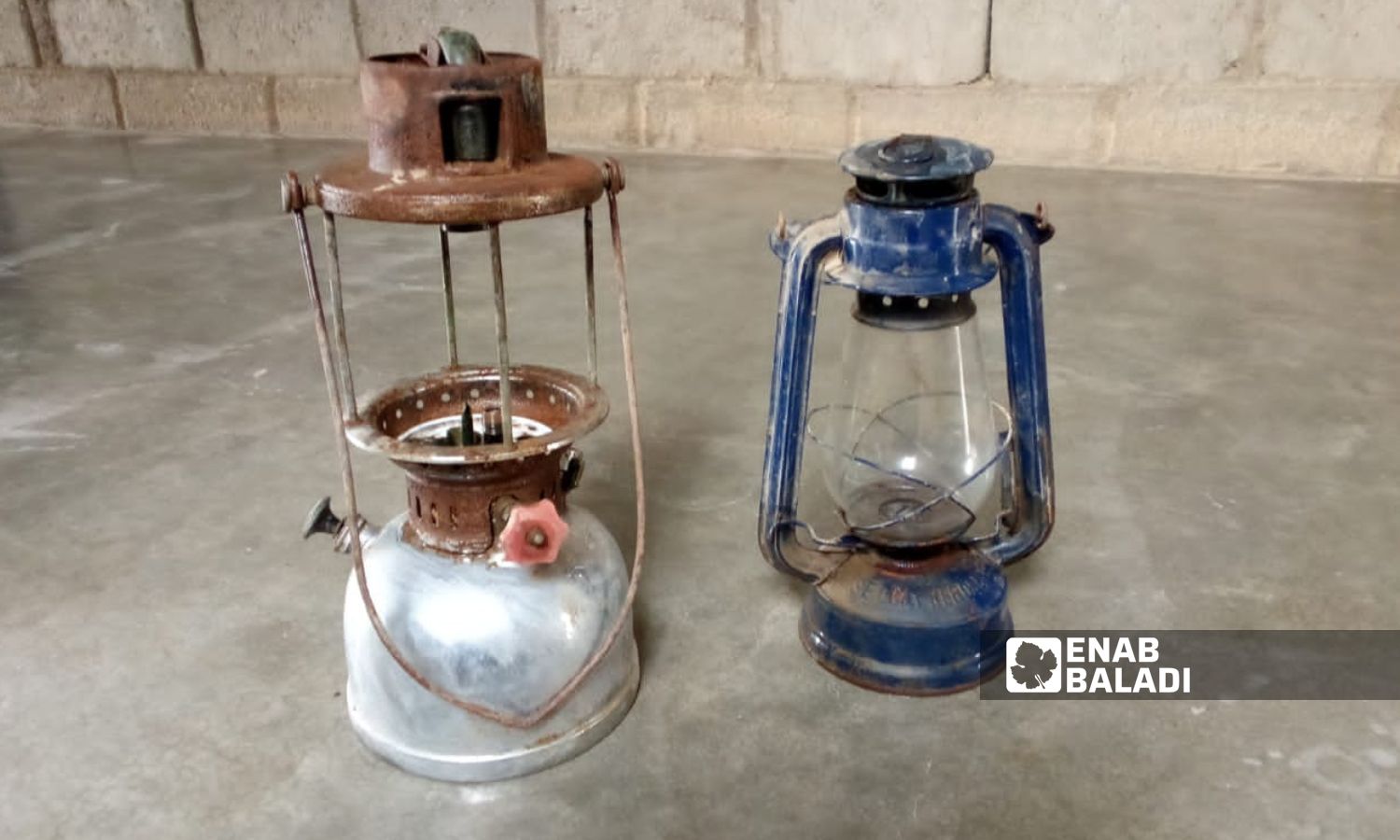



The increasing hours of power outages have forced the residents of the city of Deir Ezzor, under the control of the Syrian regime, to search for low-cost alternatives, a similar reality in various areas under Syrian regime control.
Rationing hours in areas under the regime’s control, such as the villages of al-Husseiniyah, al-Salihiyah, Hatla, Maraat, Tabiya Jazira, Mazloum, and Khasham, can reach up to 22 hours of cuts for only two hours of power connection, with some neighborhoods experiencing days without electricity.
The rise in prices of electricity alternatives, such as solar panels, private generators, and batteries of various types, has led residents to resort to using traditional methods dating back decades.
The prices of batteries in the city of Deir Ezzor range between 575,000 and 2 million Syrian pounds, depending on the amperes count, while the cost of solar panels ranges between 1.1 million and 1.9 million pounds, as per their capacity.
These prices are high compared to the citizens’ income, as the minimum wage for an employee is 186,000 Syrian pounds, equivalent to $13.2, forcing residents to seek lower-cost alternatives, such as “Lux” (a type of lantern), oil lamps, and candles.
Abdul Qader, a resident of Deir Ezzor, told Enab Baladi that he decided to look for an alternative after being unable to afford a battery to power LED lights due to their high price, which equals six months’ worth of his monthly income. Therefore, he has started using “Lux” as a substitute.
Abdul Qader uses the “Lux” for four hours daily and refills it with a kilogram of gas monthly at a price of 27,000 Syrian pounds.

Old lighting methods used in the city of Deir Ezzor – October 13, 2023 (Enab Baladi/Obadah al-Sheikh)
On the other hand, Ibrahim, who lives with his seven-member family and works in an auto repair shop, expressed difficulty in obtaining small batteries due to their high prices and in securing means to charge them because of the long hours of power rationing.
The battery needs two to three hours to be fully charged, and the batteries available in the markets stop working after six months from the date of their use, according to Ibrahim’s statement to Enab Baladi.
The average price of a medium-sized candle is 2,000 Syrian pounds, and Ibrahim pays 8,000 pounds daily for an old lighting method, describing life as costly even when using alternative means.
According to the Kassioun Index, the average cost of living for a Syrian family of five at the end of last September reached nine million and 500,000 Syrian pounds (approximately $683).
Since the beginning of the winter season, areas under the regime’s control have been witnessing long hours of rationing, pushing Syrians to rely on batteries, generators, and solar energy panels.
Minister of Electricity Ghassan al-Zamel told the local newspaper “Al-Watan” on November 27 that the confluence of the shortage in the supply of gas by 1.5 million cubic meters daily with the increase in demand and consumption of electricity with the onset of cold weather has led to an increase in the hours of rationing applied in various Syrian areas.
Al-Zamel justified, on November 14, to the same newspaper, the lack of improvement in the electricity situation in areas under the regime’s control, despite the recent repair of power generation stations, by operating a fertilizer plant invested in by a Russian company.
The plant needs 1.2 million cubic meters of gas to produce fertilizers, which is enough for the ministry to produce 300 megawatts of electricity, according to al-Zamel.
The Minister of Industry in the Syrian regime’s government, Abd al-Qader Jokhadar, announced on December 25 the resupply of the plant with the necessary quantities of gas for fertilizer production until the middle of the next month, about a week after the Minister of Electricity talked about providing these quantities for electricity generation.
if you think the article contain wrong information or you have additional details Send Correction